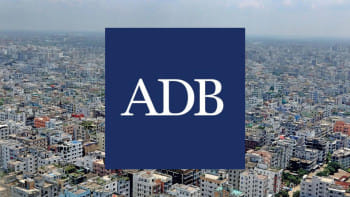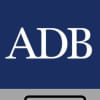ADB attaches 20 conditions to another $600m budget support

The Asian Development Bank (ADB) has outlined 20 conditions for Bangladesh to access $600 million in the second tranche of a loan for the implementation of its "Strengthening Economic Management and Governance Program".
This is in tune with the disbursement of the first tranche of $600 million last month, following the fulfilment of other preconditions.
Bangladesh must meet the new conditions between December 2024 and March 2026 to secure the loan.
Japan International Cooperation Agency, and the Organization of the Petroleum Exporting Countries are expected to contribute $350 million under the same programme, according to the ADB documents.
The conditions centre on reforms in tax administration, state-owned enterprises (SOEs), foreign investment, public-private partnerships, and Bangladesh Investment Development Authority.
The conditions centre on reforms in tax administration, state-owned enterprises, foreign investment, public-private partnerships, and Bida
Particular emphasis is placed on modernising the National Board of Revenue (NBR) to enhance efficiency and tax compliance.
Among the key requirements, the NBR's income tax and VAT wings must jointly run audits on at least 15 high-risk and high revenue generating entities.
They must also run audits on at least 20 percent of income tax and VAT returns that are submitted using an automated compliance risk management system.
Additionally, the NBR must expand the effective tax net and implement a comprehensive taxpayer outreach and support strategy.
The tax regulator is also tasked with establishing a "Risk Management and Tax Intelligence Wing" and developing an integrated database and analytics platform.
This will facilitate the "whole of NBR" digital transformation initiative aimed at improving transparency and efficiency of the tax administration.
As a part of this digital shift, anonymized taxpayer data, meaning that from which identifying information has been removed,must be made accessible to independent researchers, including specialists from the ADB, development partners, civil society, and verified research organisations.
The ADB highlighted the need to modernise the VAT system by increasing the number of goods and services on which a uniform 15 percent VAT is currently imposed.
It also called to make it mandatory for entities which pay large amounts of tax to adopt e-invoicing and implement a consistent set of criteria for mandatory inclusion of taxpayers in the NBR's large taxpayers unit which deal with VAT and income tax.
In support of these initiatives, the ADB will assist the NBR in conducting ICT diagnostics, creating an integrated taxpayer database, and developing a data-sharing ecosystem.
If these measures are implemented, income tax return submissions are expected to increase by 30 percent from the 4,301,725 filed in fiscal year 2023-24.
Similarly, VAT return submissions are projected to rise by 25 percent from the FY2024 figure of 348,929.
Online income tax return submissions are anticipated to grow by 40 percent from the 526,427 recorded in FY2024, while online VAT submissions are forecasted to increase by 25 percent from the 250,795 received in the same year.
Beyond tax reforms, Finance Division of the Ministry of Finance is tasked with enacting a comprehensive non-tax revenue (NTR) policy that integrates climate change considerations and establishes an NTR database management system.
Moreover, the Planning Division of Bangladesh Planning Commission will have to spearhead a Public Investment Management Reform Program (2024–2028).
This includes forming a National Coordination Committee to oversee public investment management reforms and introducing a digital multi-year public investment programme across at least 10 of 15 economic sectors.
To enhance project efficiency, the Planning Division will update its guidelines for preparing, approving, and revising public investment projects.
By June 2027, the average project time overrun is expected to be reduced from 24 months to 18 months, while cost overruns are to be cut by 33 percent from the current average of Tk 173.8 million per project.
The ADB will also conduct a diagnostic study on the public investment management system to improve its transparency and effectiveness.
Reforms targeting state-owned enterprises (SOEs) are another critical component of the ADB's conditions.
The Finance Division will issue an SOE Ownership Policy, mandating that the 50 largest commercial SOEs implement Public Service Obligations.
These SOEs must publish audited financial statements within six months of the end of the respective fiscal year.
Additionally, fiscal risk reports ofthe 30 largest commercial SOEs, along with an aggregate report on the top 50, will detail their performance, budgets, government support levels, and governance standards.
To strengthen SOE management, a circular will be issued requiring all unlisted SOEs to ensure that at least 20 percent of their board members are independent, and 25 percent are female by October 2026.


 For all latest news, follow The Daily Star's Google News channel.
For all latest news, follow The Daily Star's Google News channel. 








Comments